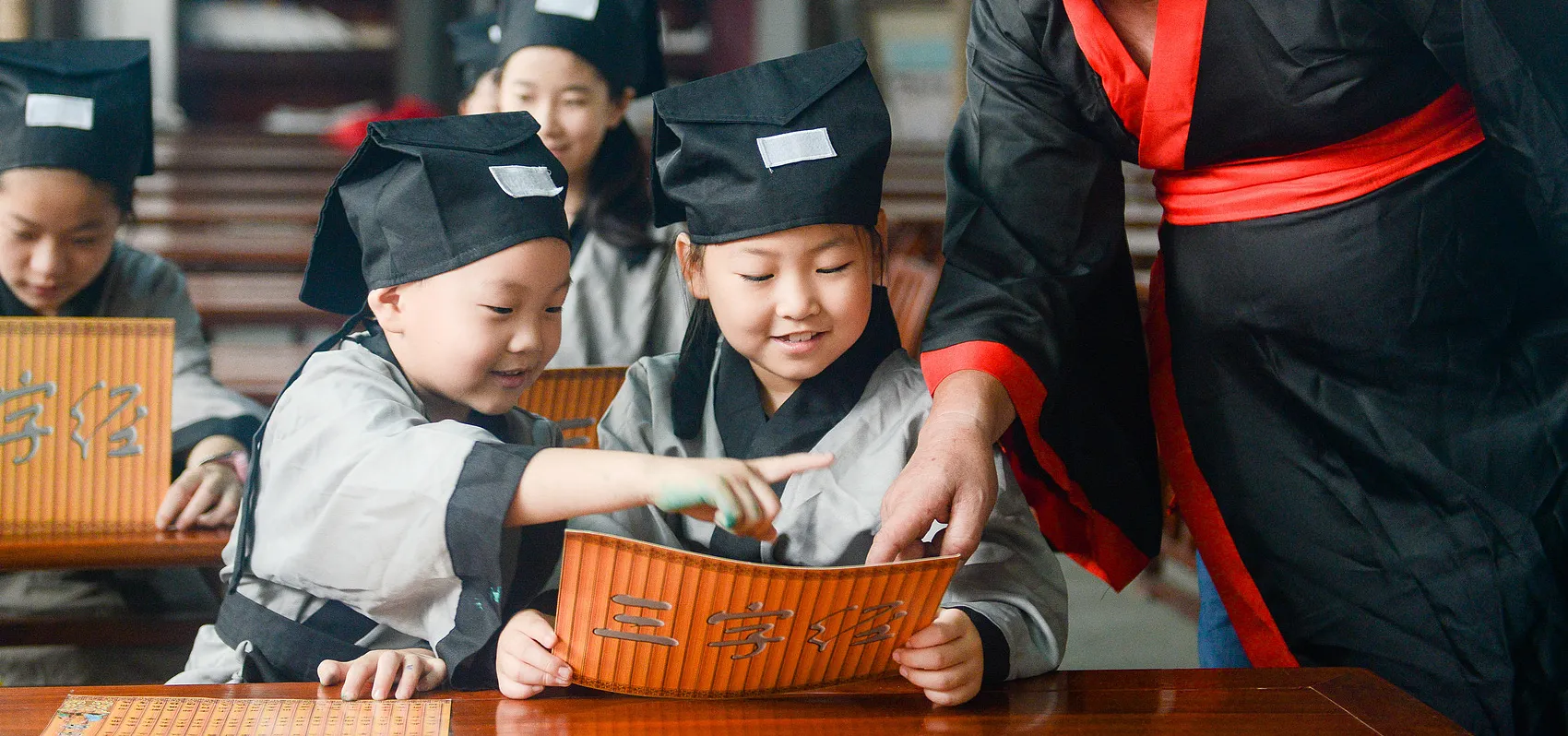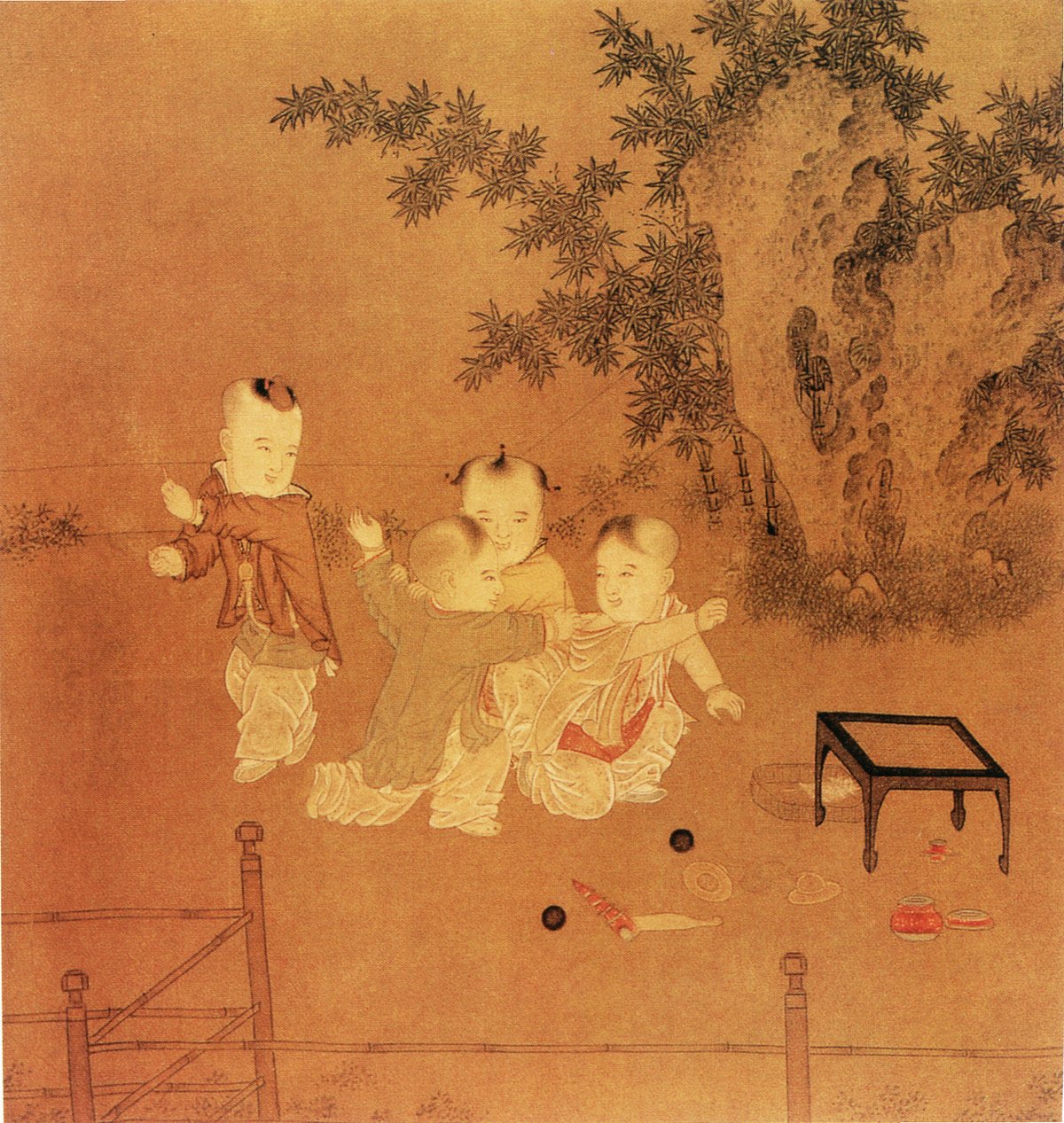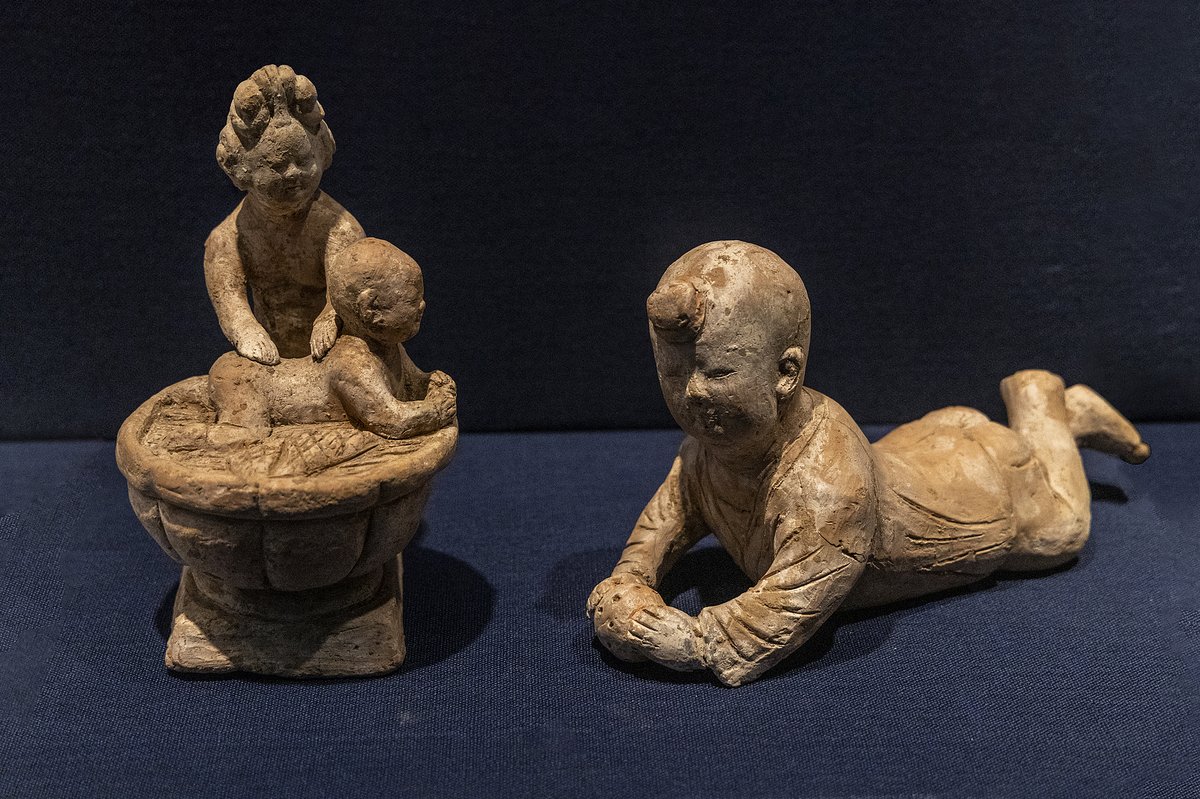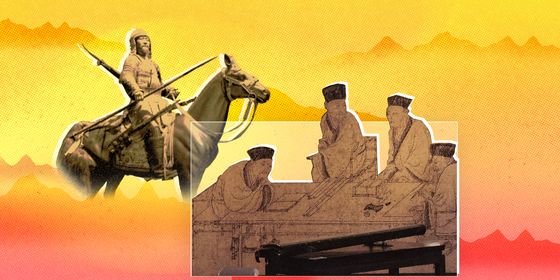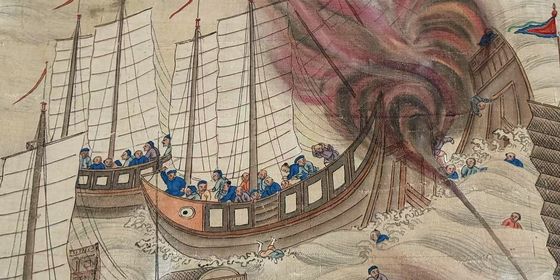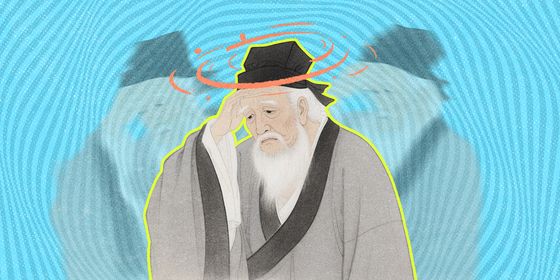How the idea of a child’s innocence has shifted through Chinese history
September’s back-to-school season doesn’t just mean new textbooks and uniforms in China. It also reopens the nightly battlefield where parents and children clash over homework. Online, frustrated moms and dads swap stories of tears and tantrums, while many also wonder whether heavy workloads are robbing children of their carefree spirit.
In China, where academic success is often seen as the gateway to a better future, parents buckle under guilt and pressure, torn between pushing their children toward excellence or allowing them a simpler, happier childhood—fueling yet another round of debate over what constitutes good parenting.
In fact, this debate is not a recent one, as the role and treatment of children have played a central role in theological debates throughout Chinese history.
Ever since the 5th century BCE, the Daoist founder Laozi had claimed that “the person of abundant virtue is like a newborn child” in Dao De Jing (《道德经》). To Laozi, “infants” represented the original and ideal state of human nature without worldly desires. He advocated that “by holding fast to the constant virtue, one returns to the state of an infant.” The idea of the infant also played a role in Laozi’s consideration of statecraft. On the question of governance, he wrote: “When the sage governs the world, he curbs his own will and makes the minds of the people return to simplicity. While the people are pursuing sensory stimulation and cleverness, the sage keeps them in a natural and authentic state like that of an infant.”
Read more about education in ancient China:
- Could You Pass Ancient China’s Exam for Child Prodigies?
- How Did Ancient Chinese Scholars Prepare for Exams?
- Paths to Power: A Guide to China’s Civil Servant Selection Systems
The scholar Mencius—known as the “second sage” of Confucianism—echoed the idea, writing that “a noble person is one who does not lose the innocent heart of a child.” The phrase “innocent heart of a child (赤子之心)” has since become a familiar expression representing sincerity, kindness, and purity of character.
However, Confucius himself believed that while a child’s heart is precious, discipline and moral education are equally essential, viewing childhood as a preparatory stage that requires guidance and cultivation before adulthood. The Analects (《论语》) lectures: “Without studying the Classic of Poetry, one cannot speak properly...without studying propriety, one cannot stand firm in society.” The Book of Rites (《礼记》), another Confucian classic compiled in the Western Han dynasty (206 BCE – 25 CE), states that children should devote the decade between ages 10 and 20 to learning cultural knowledge through literature and practicing rituals, preparing them to become rational and responsible members of society. This period culminates in the capping ceremony—guanli (冠礼) for men and jili (笄礼) for women—marking their transition from childhood to adulthood.
Yet another heir to the Confucian teachings, the Warring States (475 – 221 BCE) scholar Xunzi (荀子), held a more pessimistic view of children, seeing them as undeveloped and in need of rigorous training. He had a dark view of human nature and believed that society required strict discipline. In his eyes, children were like “warped wood” that “must be laid against a straightening board, steamed, and bent into shape.”
Xunzi is not the first one to point out the downside of having a “childlike heart.” In The Commentary of Zuo (《左传》), an annalistic historical record compiled during the Spring and Autumn period (771 – 476 BCE), Duke Zhao of the Lu State was criticized for still having a childlike heart at the age of 19, suggesting he was unfit to rule. Eastern-Han scholar Fu Qian (服虔) also interpreted “childlike heart” in his commentary at the time as “lacking the aspirations of an adult.”
In the centuries that followed, “an adult still having a childlike heart” was often seen as a flaw. Tang dynasty (618 – 907) poet Yuan Zhen (元稹), in “Admonition to My Nephews,” wrote: “The ancients ridiculed 19-year-olds with a childlike heart. Shouldn’t you be alerted?”—urging his nephews, who were approaching adulthood, to set their life aspirations. The Ming dynasty (1368 – 1644) scholar Lü Kun (吕坤) put it even more directly in his book Moaning Language (《呻吟语》), saying: “A childlike heart is the greatest flaw in being a person. Only by shedding the childlike heart can one become a true adult and a gentleman.”
It was the Ming-dynasty scholar Li Zhi (李贽), with his essay “On the Childlike Heart,” who began to revive its reputation. Li wrote: “The childlike heart is the true heart. If one considers the childlike heart to be unacceptable, then one considers the true heart to be unacceptable as well. The childlike heart is absolutely genuine and pure, the original mind of the first thought.”
The entire essay criticized hypocrisy in moral teachings and advocated that the childlike heart was the foundation and center of culture and education. Li stated that the childlike heart is easily lost, precisely because of the influence of external education. He wrote: “When a person first encounters the world, what he sees and hears enters the inner heart through the ears and eyes, gradually taking a dominant position, and the childlike heart begins to be lost. When he grows up, various moral dogmas and knowledge experiences continue to invade the inner heart and become the ruler, and the childlike heart further perishes. Over time, as moral norms and worldly insights increase day by day, people’s range of cognition seems to be expanding continuously, and they realize that a good name is worth pursuing, so they strive to boast about themselves and the childlike heart is extinguished in this process; they realize that a bad name is shameful, so they try hard to cover up the truth, and the childlike heart finally dies completely.”
Li’s views challenged traditional Confucian ideas. As a result, although his thoughts gained popularity among certain circles, they were considered unorthodox at the time. Li was eventually arrested on the charge of “daring to advocate chaos, misleading the world, and deceiving the people,” and he later committed suicide.
Even today, many fresh graduates entering the workforce are mocked for their “naivety,” often summed up by the viral phrase that “their eyes shine with a clear, innocent foolishness (眼神中透露着清澈的愚蠢).” Yet the new generation is speaking up, pushing back against toxic work culture, and challenging problematic social norms, gradually turning the slang into a badge of pride. Having endured intense schooling themselves, this generation may, once they become parents, choose to let their children remain children for much longer.





